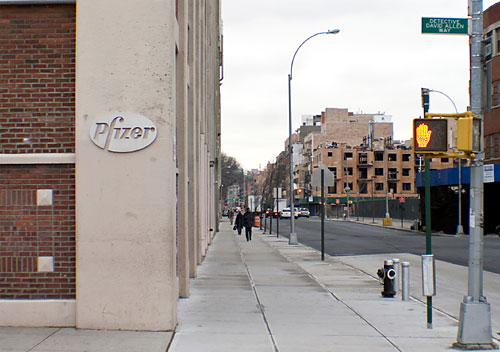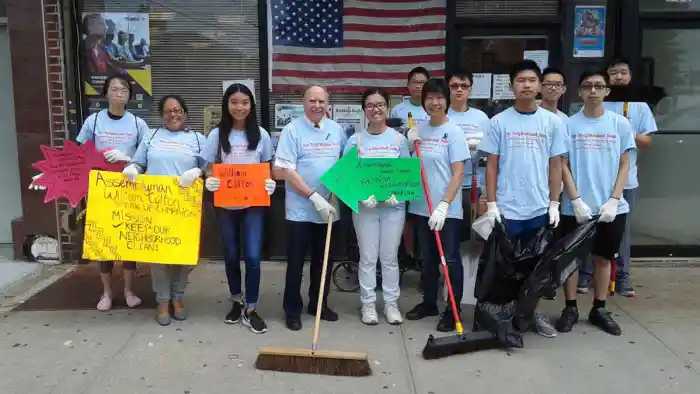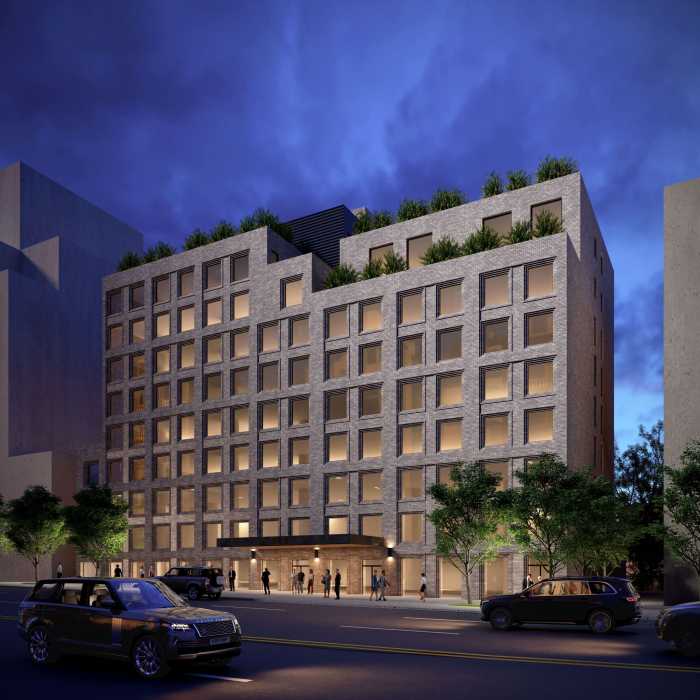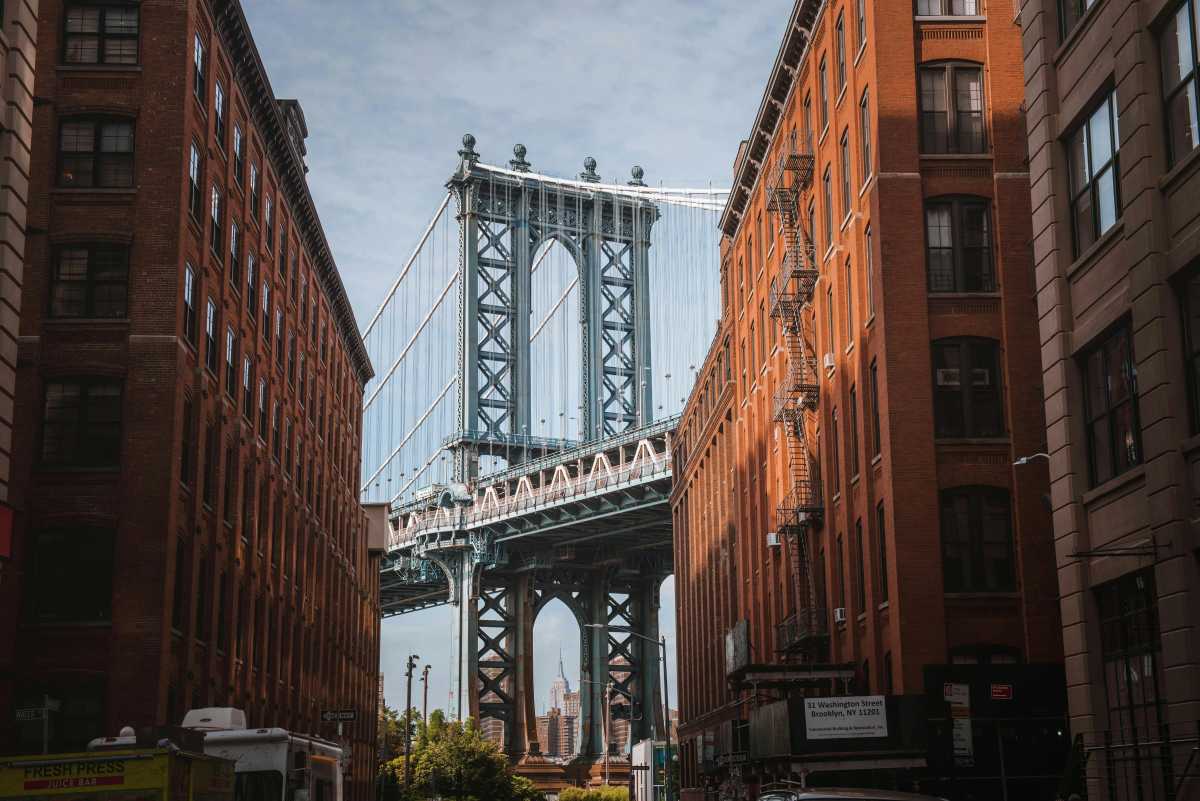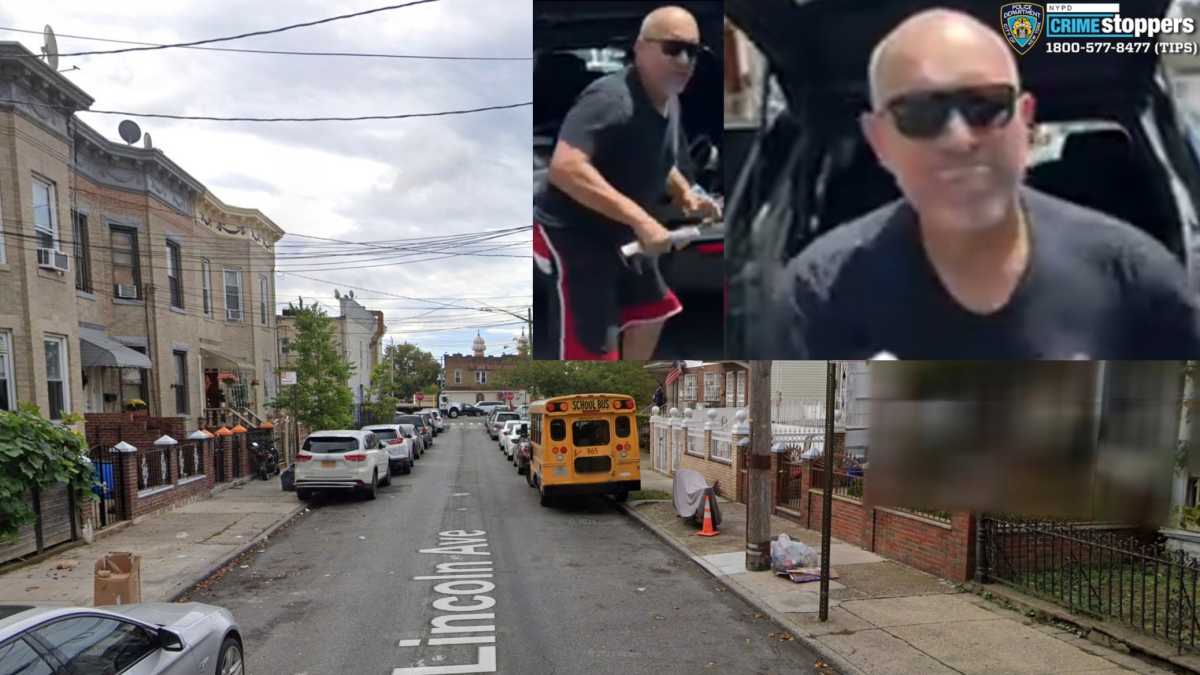Drug giant Pfizer has slammed a proposal by two state assemblymen to seize the company’s abandoned Williamsburg plant.
The former factory site, where Pfizer was founded in 1849, would be snatched away from the multi-billion-dollar corporation and redeveloped by the state as “affordable housing” if Assemblymen Vito Lopez (D–Williamsburg) and Joseph Lentol (D–Greenpoint) get their way. Lopez is the boss of the Brooklyn Democratic Party organization.
The two legislators say they will introduce a bill that would have the state use its power of eminent domain to grab the 660,000-square-foot plant that Pfizer closed a year ago, as well as a massive parking lot behind the plant and several other Pfizer buildings on 15 acres along Flushing Avenue between Marcy and Tompkins avenues.
Following the seizure, the state agency would seek developers to build between 1,500 and 1,700 units of affordable housing, a Lopez spokesman said.
The Pfizer compound today bears little resemblance to the small laboratory and manufacturing facility where the drug giant began as a small-time family operation. From that single building, the company rose to number 39 on the Fortune 500 — a pharmaceutical juggernaut second in the industry only to Johnson & Johnson.
Lopez says Pfizer broke its promise to donate its property to be redeveloped as affordable housing when it shuttered the plant and laid-off 600 workers in January, 2007.
Pfizer says it made no such promise, but added that it is planning to redevelop the site to bring low- and moderate-income housing to a neighborhood whose population is booming. That plan is still on track, Pfizer says, and Lopez’s move to take away its property is premature.
“Pfizer recently shared development scenarios for our Brooklyn properties with elected officials and stakeholders,” a Pfizer spokesman said. “We made it clear that our plans would be based on principles ranging from the inclusion of affordable housing and job creation to minority contracting opportunities.
“Within the context of these principles, we find it puzzling that a legislator would propose a government seizure of private property to redevelop the properties with the same uses we are considering.”
Lopez fired back last week, saying that what Pfizer calls “affordable housing” could be considered luxury apartments by community standards.
“Affordable housing is not for people who are making $150,000 a year,” Lopez told The Brooklyn Paper. “For me, affordable housing in Williamsburg means meeting the needs of the people who are earning between $30,000 and $50,000 a year and there is no guarantee from Pfizer that they will meet that need.”
Though the rhetoric coming from both sides sounds bitter, Brad Lander of the Pratt Center for Community Development says it doesn’t have to be public-private slugfest.
“Pfizer could be a partner in a public process, and I would strongly prefer a public process over a private one.” said Lander. “Pfizer could agree to sell the property to the city, state or a non-profit, yet retain some rights about what happens on its land.
“Pfizer says it will include affordable housing, but it is also looking to maximize its sale price, which will come at the expense of affordable housing,” Lander added. “And that’s why I have a problem with the redevelopment being a strictly private process.”


